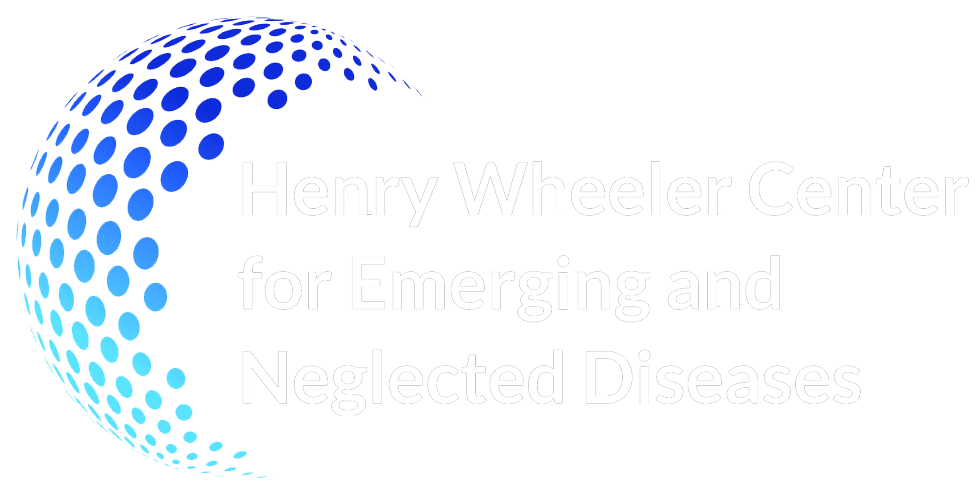About the Network
The Bay Area Virus Network represents a constellation of scientists, engineers, and clinician researchers in the San Francisco Bay Area who are working to understand, prevent, and control human and animal viral infections. It is a platform for connecting investigators at universities, biotechnology and pharmaceutical companies, and research institutes throughout the region.
The SF Bay Area offers a unique ecology for virus research, with its long tradition of innovation. Our diverse community of investigators is led by distinguished scientists like Jay Levy at UCSF, who co-discovered the AIDS virus in 1983, and Edward Penhoet at UC Berkeley, who discovered the Hepatitis C virus and went on to found Chiron (which developed the first vaccine against Hepatitis B).
CEND continues to serve as an administrative home for the network, with new co-sponsors including:
Organizations that sponsor the network benefit from participation in bayviro.org symposia and seminars, access to recruiting tools and networking events, and opportunities to interact directly with leading bay area researchers. To join as a sponsor, please email cend@berkeley.edu.
- BayViro FAQ
- Affiliated Labs
- Featured Projects
- Resources
- COVID-19 SPECIFIC FUNDING OPPORTUNITIES
- COVID-19 Bay Area Lab Facilities & Resources
Major Participating Institutions
| UC Berkeley | UC Berkeley excels in basic science research and possesses state-of-the-art facilities for conducting experiments involving next generation sequencing, proteomics, biomolecular structure determination, advanced microscopy, and transgenic animals. The virology community at UC Berkeley spans a number of departments and disciplines including Molecular and Cell Biology, Plant and Microbial Biology, Integrative Biology, Infectious Disease, Public Health, Bioengineering, Chemical Engineering, and Environmental Science, Policy and Management. The collaborative atmosphere in virology at UC Berkeley is apparent in the multiple interest groups and organizations devoted to bringing together disparate techniques towards the goal of understanding virus-host interactions and the development of novel treatment approaches. The Center for Emerging and Neglected Diseases (CEND) is a cornerstone to the UC Berkeley virology community and acts to encourage interest in virology research by providing funding opportunities and arranging symposia on topics of current interest in the field. Collaborations with other Bay Area universities, the nearby Lawrence Berkeley National Labs (LBNL), and industry partners make UC Berkeley an epicenter for the study of viruses as well as their relation to humanity. |
|---|---|
| UCSF | University of California, San Francisco is a UC campus devoted to health and life sciences. It is a powerhouse of scientific research and home to several virology labs. Its graduate programs offer an outstanding grounding in a wide variety of fields and approaches to biology. Biomedical Sciences Graduate Program (BMS) and Program in Biological Sciences (PIBS) and are particularly relevant to anyone interested in virology.
Several symposia of interest to the virology community are held at UCSF annually: note the Bay Area RNA Club (BARC) and Bay Area Microbial Pathogenesis Symposium (BAMPS). For information regarding UCSF, contact Leonid Gitlin (leonid.gitlin@ucsf.edu). |
| Gladstone Institute of Virology and Immunology | The Gladstone Institute of Virology and Immunology is a research institute dedicated to the study of virology and immunology with a focus on HIV and AIDS. Founded in April of 1993, GIVI conducts a full range of basic and clinical research on HIV/AIDS, in addition to viruses such as HCV, Epstein-Barr, and CMV. Our research also encompasses other areas of human health, highlighting our strategy to give scientists the freedom to follow their research wherever it leads. GIVI laboratories are headed by Drs. Warner Greene, Gilad Doitsh, Robert Grant, Nevan Krogan, JJ Miranda, Melanie Ott, Shomyseh Sanjabi, Eric Verdin, and Leor Weinberger. With faculty appointments within UCSF, GIVI Investigators participate in a wide range of university activities such as the Program in Biological Sciences (PIBS) and Biomedical Sciences (BMS) graduate student programs. GIVI Seminars frequent external speakers of renown in the areas of virology and immunology. The numerous resources and rich scientific environment at Gladstone is reflected in the institute’s having been ranked #1 by The Scientist as the best place to work in academia in 2011 and 2012, and illustrates our standing as an excellent place for pre- or postdoctoral training. GIVI has also partnered with UCSF for the federally sponsored UCSF-GIVI Center for AIDS Research (CFAR), which is co-directed by Drs. Warner Greene and Paul Volberding.
For information regarding GIVI, contact Renuka Kumar (renuka.kumar@gladstone.ucsf.edu). |
| UC Davis | The mission of the University of California, Davis is to advance the human condition through improving the quality of life for all. This institution uses a framework that connects its land-grant history to a transformative vision for the 21st century with the aim of making global impact in many scientific and social areas. UC Davis is composed of 4 colleges (Agricultural and Environmental Sciences, Biological Sciences, Engineering, Letters and Science) and 6 professional schools (Education, Law, Management, Medicine, Veterinary Medicine and the Betty Irene Moore School of Nursing), with a total number of 33,000 students. There are 101 undergraduate majors and 90 graduate programs, and many of these are in the biological sciences. Infectious disease research at UC Davis covers a broad range of pathogens in humans, animals (including invertebrates), and plants, and about 55 faculty members pursue research and teaching in virology.
For information regarding UC Davis, contact Paul Luciw (paluciw@ucdavis.edu). |
